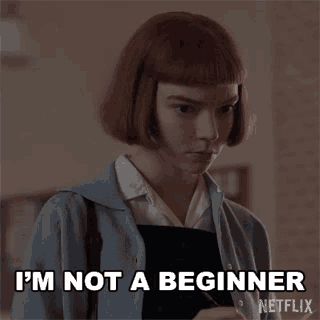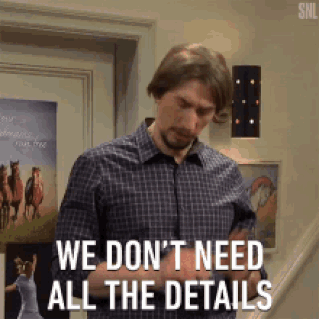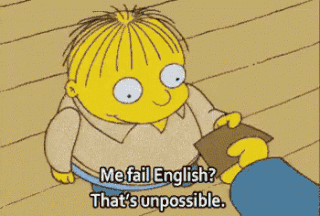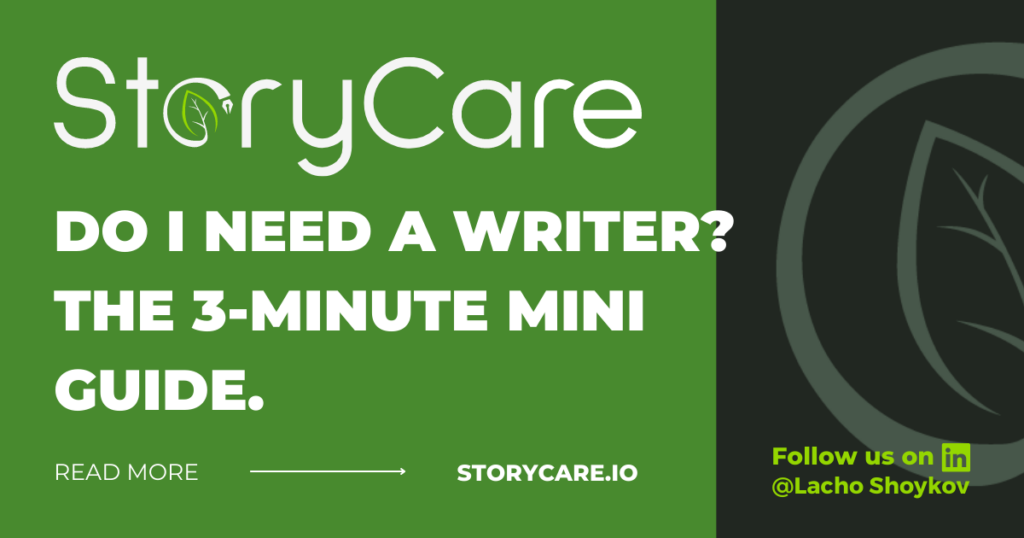How to spot beginner content writers? The 20 dead giveaways.
Beginner content writers come in many sizes and shapes. Great content is good in a unique way. Poor content sucks universally the same. Beginner writers and experts can fail, but only a beginner can get lucky. Finding out if someone got lucky is crucial when you’re looking to trust someone with your brand’s name and reputation, regardless if they are a content writer, a copywriter, or an SEO writer.

In this article:
Table of Contents
The 20 dead giveaways of beginner content writers.
Vocabulary mistakes:

1. Using big words out of place
Beginner writers often hide behind big words to compensate for their lack of knowledge in a given field.
Read the same sentence below, but \’smarter\’.
Novice writers often utilize advanced vocabulary to enhance the perception of their expertise on a subject while elucidating their stance.
2. Nonspecific language
The song \”Nuthin\’ but a \”G\” Thang\” showcases nonspecific language perfectly:
\”It\’s like this and like that and like this and uh
It\’s like this
And who gives a fuck about those?
So just chill \’til the next episode.\”
Beginner writers often leave nonspecific words like this, that, those, some, any, and others at the beginning of sentences or even paragraphs, which is a clear signal of novicehood.
PS: Nuthin but a G Thang is still a banger.
3. Saying the same thing over and over
\”This product is made of a material that is strong, tough, durable, and sturdy.\” – Sometimes, there\’s not that much to say if you\’re describing flip flops or something simple.
Writers often try to hide behind adjectives, thinking they reinforce their point. Unfortunately, the concept of less is more is often foreign to beginners.
4. Overusing the word \”really\”.
New writers often really try to write a really good article, but it ends up being really off-target.
Writers use \”really\” when they lack the vocabulary to say what they want precisely. Instead of striking the nail on the head, they circled around it.
Punctuation mistakes of beginner content writers:

5. Commas
Commas often trip up beginner writers, especially if they are non-native speakers. The result is that writers often use either too many or too few commas, which ruins the rhythm of a sentence and sometimes completely changes its meaning. Trust your eyes and read texts out loud to spot inconsistencies.
6. Quotations
Using single or double quotations out of place is a simple giveaway of a writer\’s level of expertise or if they distinguish between US and UK English. A deeper issue is when writers cannot use a consistent referencing style.
7. Apostrophes
Apostrophes signify possession, contractions, and omitted letters and have given birth to some of the most iconic mistakes in the English language; the dreaded their vs they\’re and your vs you\’re. If a writer can\’t tell them apart, they have no place parading as a pro.
8. Exclamations
Few things can ruin the vibe of a text quicker than the excessive use of exclamation marks! When writers finish every sentence like this! They remind me of sitcom laugh tracks and produce a similarly poor effect!
Grammar mistakes:

9. Passive language
Passive language is the most common way to spot a beginner writer. It\’s the silent slayer of excitement that helps your reader dispose of their attention.
When content is written by beginners, an effect of distance is often produced, which leaves readers wondering what the hell they are reading. The impact of passive voice are well known and should be avoided at all costs.
10. Inconsistent prounouns
Beginner writers are often confused about how to address the reader, so they will often switch between \’you\’, \’some people,\’ \’it is known,\’ or even retreat to \’I\’. If these switches happen often, they communicate an uncertainty that seeps into the reader, which defeats the purpose of having them read your content.
11. Inconsistent tenses
Another way to scream you are a beginner is by frequently changing tenses and jumping from the present to the past and future. This creates an effect of disunity that breaks the flow of the text.
12. Overusing Adverbs
Overusing adverbs is one of the most common giveaways of lazy writing. Instead of using strong verbs, writers opt for timid’-ly\’ adverbs that attempt to enhance the verb but are often redundant.
Here\’s a bad example of using adverbs poorly:
Our service reliably helps you successfully complete all the complex tasks which sadly prevent you from happily enjoying your day.
Mistakes that hurt readability:

13. Long sentences
Advanced writers understand moderation, when to keep a sentence going, and when to stop. Unfortunately, beginners often go on and on as if rushing to deliver their point but never quite getting there because no one told them they could make a more significant impact if they introduced a pause within their writing.
14. Generic Titles and Subtitles
Titles and subtitles or your H1, H2s, and H3s are there to help users and engines alike navigate through the text. Unfortunately, many beginners settle for lazy subtitles, which cost them the opportunity to sneak in a keyword or to help readers appreciate the text.
15. Lack of Tension
Stories exist where there is tension and uncertainty. To quote John Le Carre, \’The cat sat on the mat is not a story, but the cat sat on the dog\’s mat is.\’ Every archetypical story has at least two sides.
When people say writers should understand psychology, it is precisely for the purpose of creating tension, summoning emotions, and ultimately turning the feeling into action.
If there is no tension, there is no emotional incentive for the reader to keep going and no disincentive for them to drop the text and forget about it.
16. Missing the main point at the start
Introductions are crucial for establishing an angle, a framework, and an agenda, which give meaning to the content and draw the reader further to consume it.
The title may determine if people click on your article, but the intro will decide if they stay. Thus, introductions are excellent for showcasing a writer\’s merits.
Do writers give a mini summary, do they dive straight into tiny facts, or do they take time to paint the bigger picture to anchor the reader? I know which one I\’ve used for this article.
Beginner content writers have a certain attitude towards writing projects.

Apart from the entire forest of technicalities in the English language, there are much simpler ways to tell if a writer is experienced. Often enough, their attitude will tell you all you need.
17. Beginners are too timid to ask questions.
If you work with a writer who is uncertain in their skill or just inexperienced, they will often opt to avoid asking any questions to avoid looking amateurish. It is a very selfish thing to do and often causes easily avoidable mistakes. Thus, timidness and inactivity in the preparation phase are decisive negative factors.
18. They are too eager to get started.
Instead of being timid, other inexperienced writers react with overexcitement. It\’s one of their first writing gigs, and they are ready to walk through fire to prove themselves.
However, in their agitated state, they forget the basics of project management and fail to implement anything that resembles a straightforward process or to ask you some vital clarifying questions.
Although being overly motivated is preferable to being timid, both lead to roughly the same outcome.
19. Beginner writers underestimate edits

Beginner writers envision their ideal job as sprinting towards the end of the first draft, submitting it to you, getting a pat on the back and a few minor editing comments, saying \’Thank you, I have learned,\’ and continuing to the next task.
In reality, edits can be brutal. Complete rewrites have to be done. From the tone of voice, the facts, the target audience, and the article structure, there are so many things you can get wrong that submitting the first draft is barely half the battle.
Serious editing rounds cripple the motivation of many writers, as they clash with their expectations for the quality of their work. More experienced writers plan for edits and avoid getting too attached to their drafts. At the end of the day, the client is king.
20. Beginners overestimate creativity

Creativity is one of the defining traits of every writer, and for a good reason. It often helps them come up with alternative solutions and get out of tricky situations. Creativity is like being good at solving puzzles.
However, a person with a proven process for solving puzzles will always complete them faster and with fewer errors than someone doing things at random.
Start from the corners, bundle the same color pieces together, and so on. Creating content is just a larger puzzle; you have to figure out which pieces to use and which to omit.
Creativity can triumph over process occasionally, but it is a process that comes through experience which brings consistent results.
Final thoughts on Beginner Content Writers

There are many ways to spot beginner writers who claim to be filling bigger boots than they do. However, there are many ways to spot them, even if you are not an expert in the English language.
You can always judge the readability, and you can always see their attitude before starting a project. Apart from that, there are dozens of language technicalities to separate the wheat from the chaff.
I hope this guide was helpful and that you enjoyed the read!


